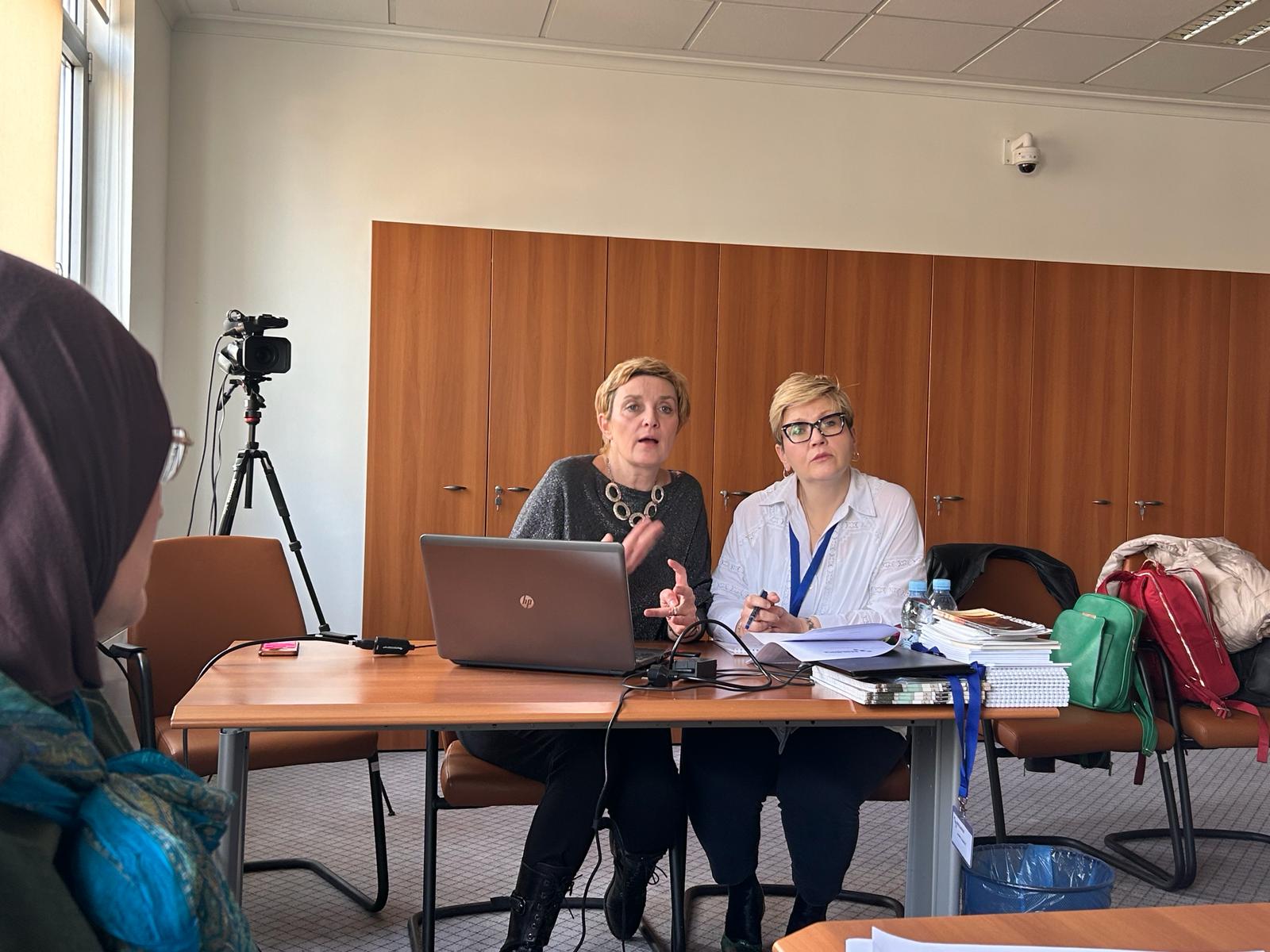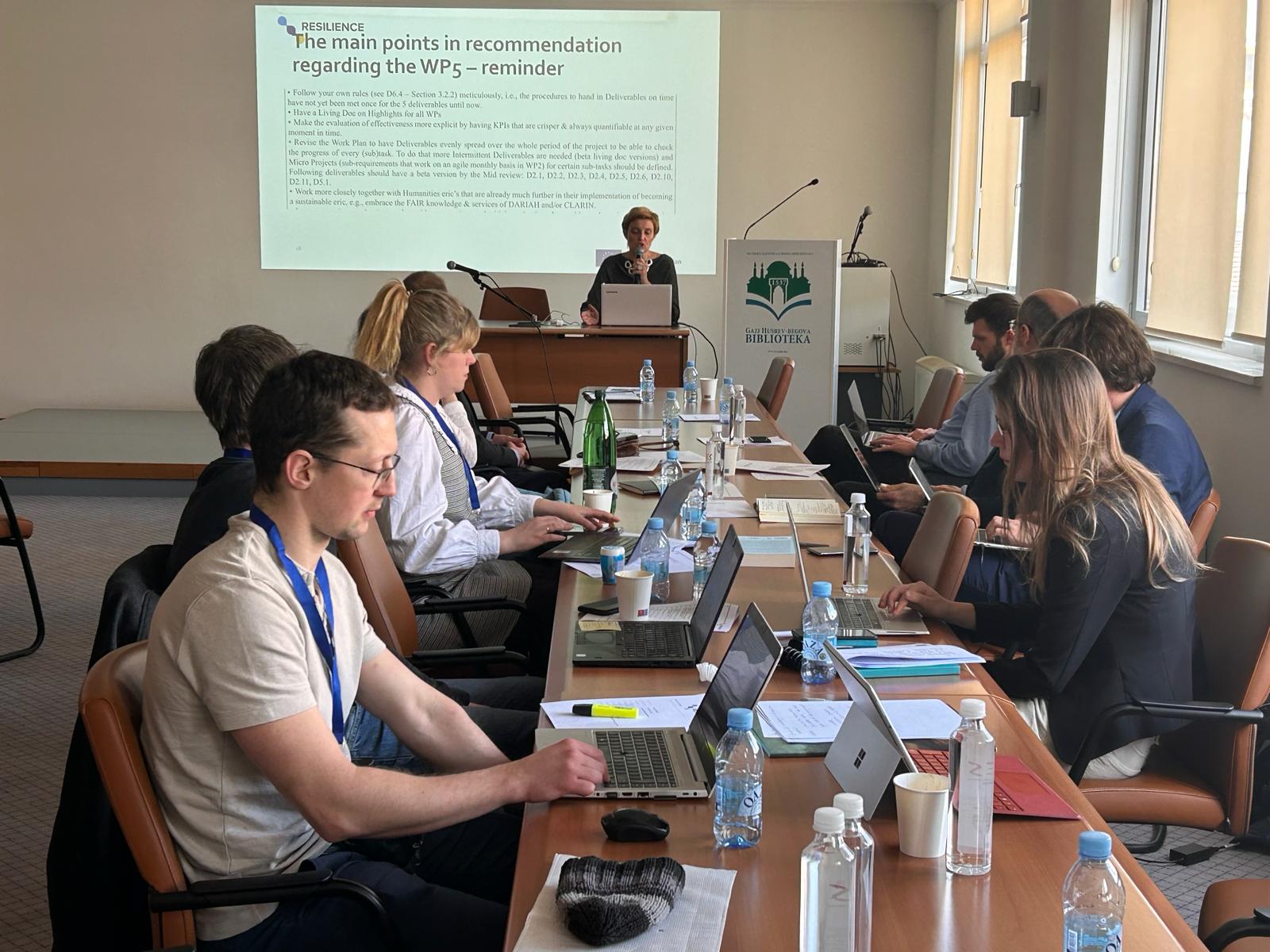Follow-up Steps Towards an Adequate Impact Assessment Plan
Led by the University of Sarajevo, RESILIENCE team members today delved further into the topic of impact, enabling them to take follow-up steps towards an adequate Impact Assessment Plan.
Workshop
The hybrid workshop was intented to showcase on the example of RESILIENCE trainings how the Impact Assessment Plan* will be developed, and secondly on reaching agreement on the methodology for defining impact.
Achievements
Fortunately, attendees did not have to start at zero. An earlier online session had already formulated some criteria for getting started on working on the topic of impact, while it was also decided before to take RESILIENCE trainings as a case study. Team members from the University of Sarajevo had already designed a draft document on monitoring and evaluating RESILIENCE trainings, being a comprehensive guideline for systematically collecting, monitoring, and evaluating data across the diverse levels of outputs, outcomes, and impact. The document was discussed and commented on, while remaining questions came to attention and were answered: a good achievement in terms of content and of process, showing the capacity of the team to take follow-up steps.
Impact Pathways
Workshop participants were introduced to the RI-PATHS’s Research Infrastructures’ Impact Assessment Toolkit, and together various pathways and their indicators for the relevant impact were checked, followed by a discussion on how to measure that impact. As became clear during the exchange and since impact of RESILIENCE will be strongly determined by the services it will offer to the research community, impact will go in the direction of making research more efficient, more transparant and more innovative. Besides, defining impact on other areas, like economy, is still on the agenda.
Next Steps
Among the next steps now are improving the guidelines for the case study on training, including the service of TransNational Sccess, as well as further consideration if RESILIENCE’s service strategy, currently under construction, can give inspiration for the further development of the Impact Assessment Plan. The planned workshop in Leipzig later this month on the topic of training will be a good place for that.
* RESILIENCE’s Impact Assessment Plan is based on the Research Infrastructures’ Impact Assessment Toolkit, which identifies the right indicators for RESILIENCE and particularly evaluates the impact of RESILIENCE on research, citizens and the different local and national contexts.

Dženana Husremović (left) and Jelena Brkić Šmigoc (right), University of Sarajevo

RESILIENCE Team Members joining the workshop at Sarajevo